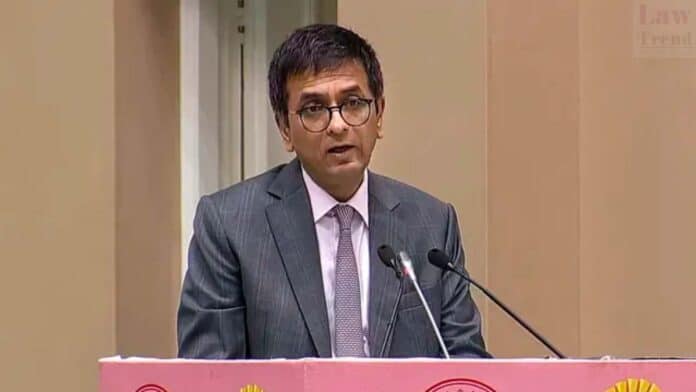Chief Justice of India (CJI) D Y Chandrachud emphasized the need for the Indian legal system to adapt to technological advancements to improve accessibility and efficiency in court processes. Speaking at the launch of the Delhi High Court’s ‘Digital Law Reports,’ he hailed the initiative as a crucial step towards democratizing legal knowledge and making judicial decisions more accessible to the public.
The ‘Digital Law Reports’ is designed as a comprehensive digital platform for the publication of significant judicial decisions, which CJI Chandrachud described as a “powerful platform” that will serve as a “treasured resource” for legal professionals, researchers, and the general public. This initiative is part of a broader push to ensure that the legal system keeps pace with the “unstoppable” march of technology, moving away from outdated paper-based systems to more streamlined, electronic formats.
“The legal system must evolve with the advancements in technology. Lawyers and litigants relying on electronic tools cannot be asked to revert to outdated methods,” CJI Chandrachud stated. He further urged the legal community and the public to support and advocate for these transformative changes to maintain justice’s reach to everyone.
During the event, which was attended by Supreme Court Judge Abhay S Oka and the Acting Chief Justice of the Delhi High Court, Manmohan, among others, CJI Chandrachud also highlighted the role of digital transformation in achieving environmental sustainability. He linked this effort to the United Nations’ Sustainable Development Goals, noting that digital filings significantly reduce the legal profession’s carbon footprint.
“Each digital file saves a tree, and each online submission reduces our carbon footprint,” he remarked, emphasizing the environmental benefits of adopting digital technologies in judicial processes.
Also Read
Additionally, CJI Chandrachud shared personal insights into his lifestyle choices, including his decision to adopt a vegan diet, influenced by his specially-abled daughters and a commitment to a “cruelty-free” life. He also inaugurated a restaurant in the high court campus that will be run by neuro-divergent individuals, further demonstrating his advocacy for inclusivity and sustainability.
The event also marked the mention of the Supreme Court’s ‘E-Supreme Court Reports’ portal, which hosts thousands of judgments translated into multiple languages, enhancing the accessibility of legal information across India.




